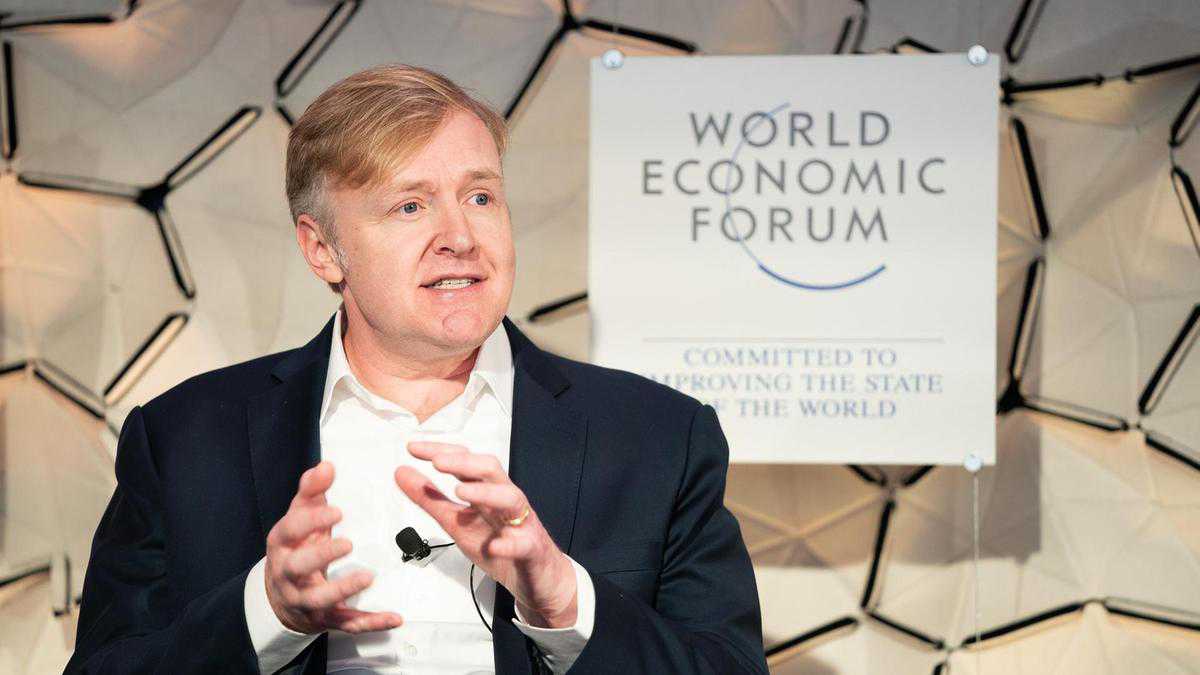Men not women will take jobs in AI, blockchain and data warns LinkedIn founder
25 January, 2020

Women with technology skills are still at risk of being excluded from jobs in the fastest growing careers of the future such as artificial intelligence and blockchain, warned a co-founder of professional networking site LinkedIn.
This is because women do not have the same access as men to the support structures that can provide them with the opportunities to secure these roles.
“If we look forward and those are in fact the jobs of the future, who will have those jobs, we know for sure that if things don’t change men are going to have those jobs and women are not,” Allen Blue told The National on Friday in Davos at the World Economic Forum annual meeting.
The Forum has estimated that it will take 257 years for women to have the same economic opportunities as men. That gap is growing. Emerging technological developments driven by the Fourth Industrial Revolution are expected to transform more than 1 billion jobs – almost one-third of all jobs worldwide – in the next decade, according to the Forum. By 2022, 133 million new ones will be created.
The next generation of “great jobs” are in software engineering, AI, blockchain, machine learning, data science and cloud computing, said Mr Blue. LinkedIn research shows that women account for about 30 per cent of these tech-related jobs.
The site has 660 million users and their profiles combined with the 20 million open jobs on its system provide data that when aggregated show where the skills gaps are in locations around the world, said Mr Blue.
The research suggests that there are women with the skills to perform these roles who are working in adjacent fields. They could be helped to transition with access to the right networks, Mr Blue said.
“We have been able to observe and this is a big area of focus for us at LinkedIn right now, your network is strongly determining of your career success.”
However, offline networks are largely homogenous.
“What that means is if you fast forward the clock and you’ve got too few women in these jobs already the network reinforces that separation over time. So what we end up with in five years or ten years is hardened separations between what type of jobs women have and what type of jobs men have and it is even harder to break down the gender wall.”
This bias can also be present in algorithms because of the different behaviours between men and women.
LinkedIn has been working over the past 18 months to ensure that its site removes as much of this bias as possible to give women a more equal opportunity to be identified by prospective employers in high tech fields.
Getting more women into these roles would not mean that men miss out instead, Mr Blue said.
Across every industry “there is so much demand for these skills that basically we will take anybody who has these skills.”
The benefits of a more diverse workforce can be clearly felt in the innovation it can support, he said.
In Silicon Valley “we know about how innovation works and innovation is frequently bringing together people who have diverse opinions to work on a single problem and ideally a new problem”.
Mr Blue said that it is LinkedIn’s eventual goal to make sure that the 3.3 billion people who work around the world “get that extra power to use their network in order to achieve both their career and work goals”.
In Davos, there were hopeful signs that the message is beginning to get through.
Goldman Sachs chief executive David Solomon, for example, said that the investment bank would no longer take a company public if it lacks a director who is either female or diverse.
Source: www.thenational.ae
TAG(s):
